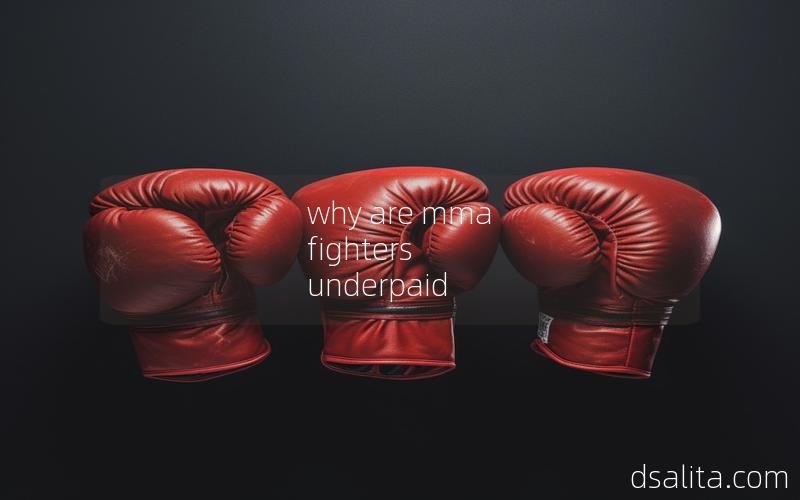Mixed Martial Arts (MMA) has gained immense popularity in recent years, attracting millions of viewers worldwide. However, despite the sport’s growing popularity, many MMA fighters are still underpaid. This issue raises concerns about the fairness and sustainability of the industry. In this article, we will explore various reasons why MMA fighters are underpaid.
Lack of Unionization
One of the primary reasons why MMA fighters are underpaid is the lack of unionization within the sport. Unlike other professional sports, such as basketball or football, MMA fighters do not have a strong collective bargaining power. This absence of a unified voice makes it difficult for fighters to negotiate fair pay and working conditions.
Furthermore, without a union, fighters have limited access to benefits such as healthcare, retirement plans, and injury compensation, which further contributes to their underpayment.
Revenue Distribution
The revenue distribution model within MMA is another factor that leads to underpayment. Promoters and organizations often take a significant portion of the revenue generated from ticket sales, pay-per-view buys, and sponsorship deals, leaving little for the fighters themselves.
Additionally, the lack of transparency in revenue sharing makes it challenging for fighters to determine if they are receiving their fair share. This opacity allows promoters to exploit fighters and pay them less than their actual worth.
Expensive Training Costs
MMA fighters must undergo rigorous training to compete at a professional level. The costs associated with training, including gym fees, equipment, coaching, and travel expenses, can be substantial. These expenses often fall on the fighters themselves, leaving them with little financial support.
As a result, many fighters are forced to take on additional jobs or rely on sponsorships to make ends meet. This financial burden can hinder their ability to focus on training and negatively impact their performance in the cage.
Lack of Job Security

MMA fighters typically do not have long-term contracts or guaranteed income. Their pay is often determined on a fight-by-fight basis, leaving them vulnerable to sudden changes in the industry or injuries that prevent them from competing.
This lack of job security makes it difficult for fighters to plan for the future and forces them to accept lower pay in fear of losing opportunities altogether. Promoters can exploit this uncertainty by offering lower wages and restrictive contracts.
Gender Pay Gap
Another concerning aspect of MMA fighter underpayment is the gender pay gap. Female fighters, despite their skill and dedication, are often paid significantly less than their male counterparts. This disparity in pay undermines the principles of equality and fairness within the sport.
Addressing the gender pay gap is crucial to ensure that all fighters, regardless of their gender, receive fair compensation for their efforts and contributions to the sport.
Limited Sponsorship Opportunities
MMA fighters heavily rely on sponsorships to supplement their income. However, the number of available sponsorship opportunities is limited, especially for lesser-known fighters or those outside the top rankings. This scarcity drives down the value of sponsorships and, subsequently, the overall pay for fighters.
Furthermore, the exclusivity contracts signed with certain sponsors can restrict fighters from seeking additional sponsorship, limiting their ability to negotiate higher pay.
Public Perception and Stigma
MMA, being a combat sport, often faces negative public perception and stigma. Some people view it as a brutal and violent sport, which can affect the sport’s mainstream appeal and financial viability.
This negative perception can lead to lower ticket sales, decreased pay-per-view buys, and limited sponsorship opportunities. As a result, fighters face the consequence of reduced income due to the overall financial constraints imposed on the sport.
Conclusion
The issue of underpayment in MMA is complex and multifaceted. Factors such as the lack of unionization, revenue distribution, expensive training costs, lack of job security, gender pay gap, limited sponsorship opportunities, and public perception all contribute to the problem.
Addressing these issues requires collective action from fighters, promoters, and governing bodies to ensure fair compensation and a sustainable future for MMA. Only by working together can the sport evolve into a more equitable and rewarding industry for all involved.

 Dsalita Boxing
Dsalita Boxing






